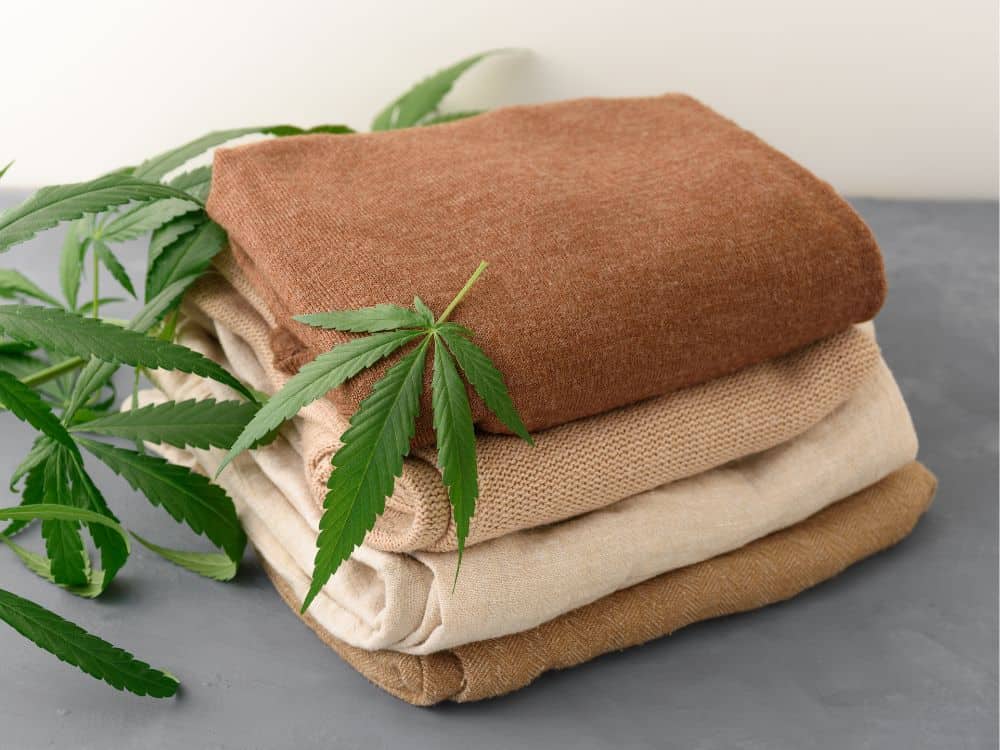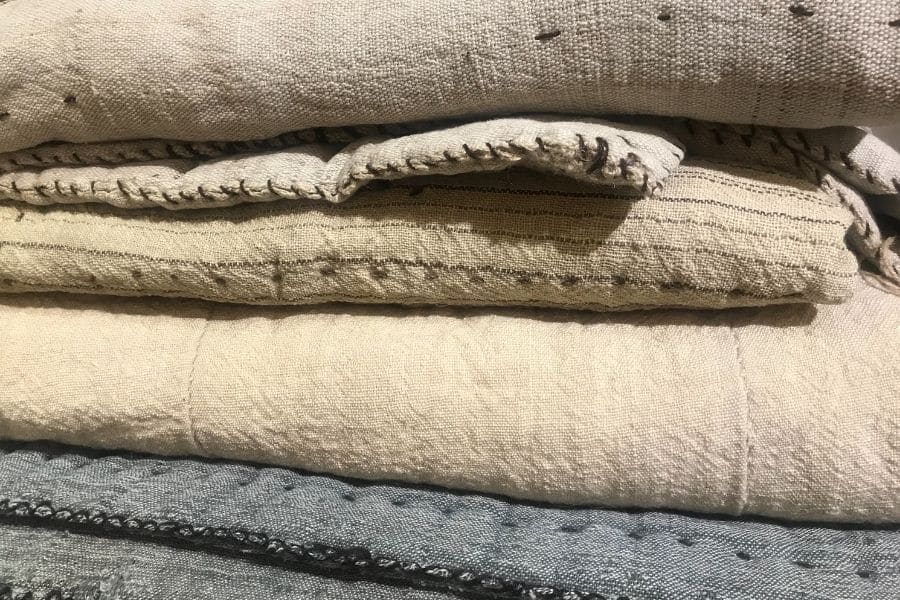Recommended News On Choosing Hemp Clothing
Wiki Article
Why Is Hemp More Durable, Regenerative, And More Biodegradable Than Cotton?
Hemp is more biodegradable than cotton and is also thought to be sturdy. This is because of the inherent qualities of hemp and how it is grown. Here's why- Biodegradability-
Natural Fibers- Hemp is a natural fiber from plants is biodegradable. Clothing and textiles from hemp naturally break down when they are discarded. They then return to the earth, without leaving permanent residue. Contrast this with synthetic fibers like polyester, which can require hundreds of years to break down.
Hemp textiles are not contaminated with chemical additives and synthetic chemicals which may hinder biodegradability. Certain cotton fabrics, on the other hand might have been treated with synthetic chemicals, such as dyes and finishes that can delay biodegradation.
Durability-
Fiber Strength- Hemp fibers are known for their durability and strength. Hemp clothing is less likely than cotton to wear out, which means it lasts longer. The durability of hemp clothing indicates that it is able to endure more washings and wearing cycles before degrading.
Hemp fabrics have a lower tendency to pill (the formation of a small fuzzy ball on the surface of the fabric) as compared to cotton. This characteristic enhances their overall quality and durability.
Regenerative Agriculture-
Soil Health - Hemp cultivation can be regenerative if it is done in a sustainable manner. Hemp has deep roots which helps to keep soil from compaction and erosion as well as enhance soil health by opening up the soil and enhancing microbial activity. This regenerative component will help keep the soil more suited to produce future crops.
Low Environmental Impact- Sustainable hemp cultivation methods usually require minimal pesticides and herbicide use, thus reducing the environmental impact. Contrary to traditional cotton farming, the use of synthetic chemicals can result in soil degradation and water pollution.
Water Efficiency-
Low Water Requirements- Hemp typically needs less water than cotton for development. Its drought-resistant characteristics mean that it is able to thrive even with little irrigation, or even in conditions that are rain-fed. It is therefore more water-efficient, particularly in regions where water resources are in short supply.
Hemp can be integrated into crop rotations, which improve soil health by reducing the risk of disease and soil depletion. Cotton farming isn't as susceptible to the effects of crop rotation.
Hemp's versatility lets it be used for many different applications like clothing, textiles papers, building materials and paper. The versatility of hemp means that it is able to support a variety of industries that employ sustainable practices that are regenerative and sustainable.
It is important to know that hemp is an excellent product, however it could also be unsustainable, depending on your processing and farming methods. It is best to choose hemp products made with eco-friendly and ethical methods. This will maximize their environmental benefits. In the same way, choosing organic cotton can help alleviate some of the environmental concerns related to conventional cotton production. Check out the most popular additional info for blog info including 100 hemp clothing, patagonia iron forge pants, t shirt hemp, hemp yoga pants, hemp tank top, hemp button shirt, hemp apparel fabric, patagonia hemp overalls, hemp clothing wholesale, patagonia work pants hemp and more.

How Does Hemp Clothing Compare To Other Fibers In Terms Of Quality And Function?
Hemp clothing comes with a number of benefits in terms of technical and functional over other fibers, while being eco-friendly. Here are a few ways which hemp clothing is an eco-friendly and high-performance option for moisture wicking and breathability-
Hemp fibers help wick away moisture from your body, keeping your body cool and dry during hot temperatures. They help keep you dry and cool, and prevent bacterial growth.
Temperature Regulation
Hemp clothing has excellent thermoregulating capabilities. It helps keep your body warm by trapping warmth close to you, and can also assist you in staying cool in hot weather. This natural thermoregulation could reduce the frequency of changing clothes.
Durability and longevity
Hemp fibers are durable. Hemp clothing is known to be stronger and resistant to wear and more durable than other fibers. The durability of hemp clothing ensures that it will last for longer, which reduces the requirement to replace it and, thus, reducing the environmental impact.
UV Protection
Hemp fibers offer natural UV protection, shielding the skin from damaging UV radiation. This is a feature that can be particularly beneficial for outdoor activities.
Biodegradability:
Hemp clothes are biodegradable. It degrades in a natural way in time. It's an excellent method to reduce the amount of textile waste and the impact on the environment.
Low Environmental Impact
Hemp is usually grown using less herbicides, pesticides and synthetic fertilizers than cotton. It is also environmentally friendly because it uses less. Organic hemp farming enhances the eco-friendly features.
Carbon Sequestration
Hemp is a great plant to absorb CO2 from the atmospheric air. The cultivation of hemp acts as a carbon sink, which aids in reducing the level of greenhouse gases.
Sustainable Crop Rotation and Sustainability-
Hemp can be added to the crop rotation systems. This improves soil health and reduces the risk of soil loss. This sustainable farming practice can contribute to the eco-friendly aspects of hemp.
Versatility:
Combining hemp fibers with other substances like organic cotton and recycled polyester can create eco-friendly, high-performance fabric blends. This flexibility allows the creation of innovative, sustainable textile products.
Low Toxicity
Hemp fibers are non-toxic by nature and do not need an extensive chemical process in the manufacturing process, help reduce the environmental impact.
While hemp provides many environmentally friendly and functional benefits however, the sustainability of clothing is also affected by other factors like dyeing processes and transportation. Also, it is affected by ethical work practices. To make environmentally conscious choices consumers should seek out clothing brands that are committed to sustainability integrity, transparency, as well as ethical production practices when using hemp and other natural fibers in their clothing. View the best a fantastic read for hemp clothing for more tips including hemp tees wholesale, hemp apparel fabric, organic hemp fabric, hemp clothing womens, hemp sweater, hemp yoga clothes, hemp sweater, hemp pants, hemp pants womens, hemp pants and more.

What are the major differences between hemp and bamboo fibers
There are numerous differentiators between bamboo and hemp with their distinctive characteristics. Here are some of the major distinctions between bamboo and hemp fiber- 1. Plant Source-
Hemp- Hemp fibers are derived from the hemp stalks plant, and specifically the bast fibers that are in the outer layer. Hemp is adaptable, quick-growing and was used to make numerous products over the years.
Bamboo Fibers of Bamboo are made by the cellulose of bamboo plants. Bamboo is grass that is fast growing and is renowned for its sustainability.
2. Fiber Characteristics
Hemp- Hemp is known for its strength and durability. They are among the strongest of all the natural fibers. Each time they wash them, they soften up and more flexible, making them ideal for textiles that last for a long time.
Bamboo fibers are silky soft with a smooth, silky texture. They may be less dense and less sturdy than hemp, but are appreciated for their comfort.
3. Texture and Feeling
Hemp- Hemp fabrics have a textured, slightly coarse sensation when they are in their natural state. While it can be an extremely comfortable fabric, its texture is distinct from bamboo.
Bamboo fabric is smooth and silky. It's extremely soft. It is often described as feeling like a mix of cotton and silk making it highly comfortable to wear.
4. Dryness and Breathability-
Hemp- Hemp fabrics are naturally wicking away moisture. This allows for more air circulation, and also absorbs water. They can keep you cool and dry in hot weather.
Bamboo is also very breathable, and it wicks away moisture. They are made up of micro-gaps that enhance their ability to regulate humidity and temperature. This keeps you comfortably in various circumstances.
5. Environmental Impact-
Hemp Hemp is a kind of fiber that's considered eco-friendly due to the fact that it needs little water, is able to grow quickly, and has a high resistance to insects. It also lowers herbicide and pesticide usage. Hemp can absorb CO2 from the air as it grows.
Bamboo is considered to be an environmentally friendly material. It grows quickly and requires very little water and doesn't need synthetic pesticides. Some bamboos are considered sustainable, such as Moso bamboo.
6. Processing-
Hemp- Hemp fibers must be extensively processed in order to separate the outer bast fibres from the inner core. The process may involve retting or decortication.
Bamboo The bamboo fibers are extracted using a chemical known as the viscose process. The bamboo pulp is then broken down with chemicals. Some bamboo textiles however, use closed-loop processes to reduce chemical waste.
7. Versatility-
Hemp- Hemp fibres can be used for a wide range of purposes, such as clothing, textiles, and paper. They also make excellent construction materials.
Bamboo fibers- Bamboo fibers are primarily used in clothing and textiles but can also be found in other items such as sheets and towels.
Both bamboos and hemps have advantages when it comes to sustainability and unique characteristics. Pick between bamboo and hemp according to the qualities and qualities you're searching for, as well as your environmental preferences. Check out the top bamboo clothes for blog examples including bamboo jeans ross, bamboo newborn clothes, ladies bamboo tops, bamboo long sleeve shirt, angel dear bamboo pajamas, faceplant pajamas, bamboo under wear, bamboo button down shirts, long sleeve bamboo t shirt, bamboo sweatshirt and more.
